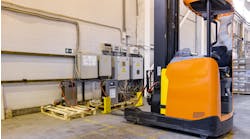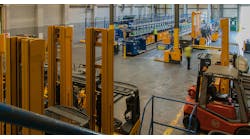Whether I'm talking to a manufacturing or retail executive or someone in publishing, I cringe every time I hear anyone say, "This is a mature industry." The words that follow are always some version of, "So we can't do anything differently, or develop anything really new or innovative, or invest in any new technology and equipment, because there aren't any new ideas, we don't have any resources and the last time I checked our customers seemed pretty happy the way things are."
My gut reaction to such comments is to flee, before I can catch the maturity malaise.
When market analysts describe an industry as mature, they do so in comparison to other sectors that they characterize as "emerging" or "growing." Mature industries have consolidated to a few major players and sales growth moves along with the growth—give or take a few percentage points of market share—of the overall market. Just because an industry falls into the " mature" market category does not mean executives and managers should think or act that way. How the rest of the industry is performing is no justification for year after year of uninspired growth and lackluster profits, even if your peers are all reporting similar results. Maturity in the business world is the refuge of those who lack the vision or ability to seek out and capitalize on new opportunities.
One of the basic lessons of Management 101 is that management's expectations have a direct bearing on performance. When business leaders repeatedly qualify their performance in relation to a mature industry, and communicate such expectations to their managers, who in turn pass on both the message and mindset to their reports, maturity becomes a self-inflicted sentence.
This mindset can rear its woeful head at all levels of a manufacturing, distribution or retail business. Visitors know, within minutes of walking in the door, the managerial expectations a warehouse or distribution center is operating under. Obvious things give it away. These include the quality of the lighting and how recently the walls, racks and floor have been painted, as does the general appearance of conveyors, lift trucks, and other equipment. More telling than the age of equipment and the facility itself is how well they've been taken care of. When one sees a 10-year-old vertical carousel that's looks as clean as the day it was installed,operating more efficiently than originally designed, you know a lot about managers' expectations.
Equally revealing is the presence or absence of signs—and how recently they've been updated—spelling out the organizational vision as well as near-term objectives, and graphs on bulletin boards that chart current performance. Such posted goals may or may not trickle down to the day-to-day work on the floor, but it's amazing how many operations fail to remind people what the ultimate goal is, tell them what management's daily and weekly expectations are, and show them whether or not they are making any progress.
Most telling of all are the people themselves. People know when they're performing well, and when they're part of a well-run organization. Clarity of expectations leads to clarity of purpose, which you can see in how people move and go about their work. How people are treated, is also reflected in how respectfully they treat visitors, be they upper management, customers or journalists.
Material-handling professionals deliver value to customers through superior service, and profit to the company through superior efficiency. Even in a mature market, there are always new ideas and technology that can be implemented and installed that will reduce expenses and, as academics describe it, push out the border of the productivity frontier. If expectations are not tempered by mature thinking, breakthrough performance can deliver breakthrough results.
It is our mission at Material Handling Management to inform you of these opportunities for breakthrough performance, and inspire you to make changes, reduce costs and help your company deliver superior customer value before your competitors can follow suit. Managers who understand there are endless opportunities for improvement, and who communicate that belief to their people—no matter how many years they've been around, or how gray their hair might be—will show the rest of us the way.


